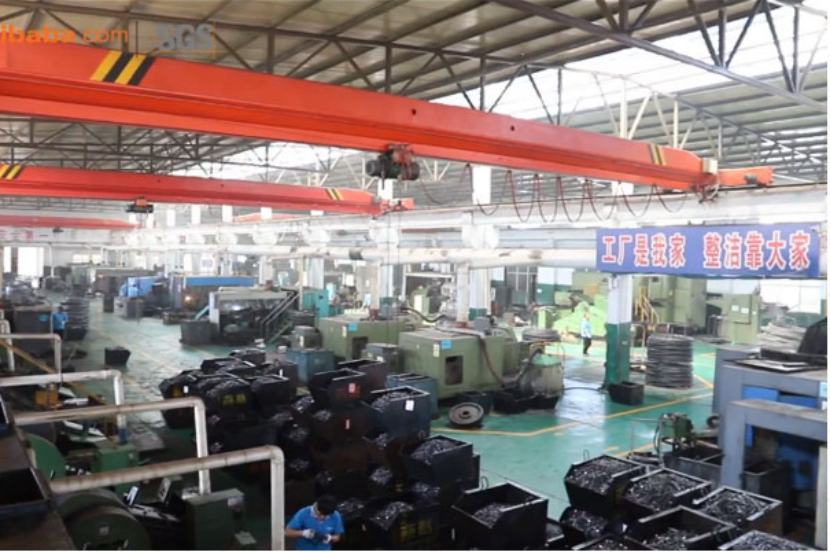stud bolt b16
dec . 12, 2024 11:57 Back to list
stud bolt b16
Understanding Stud Bolts The Key to Reliable Connections in Engineering
In the world of engineering and construction, stud bolts play a crucial role in ensuring the integrity and durability of structures and machinery. Often referred to as bolt studs, these versatile fasteners are characterized by their threaded design, which allows them to be securely fastened into a variety of applications. With an understanding of what stud bolts are and their significance, we can appreciate the engineering precision they embody.
What are Stud Bolts?
A stud bolt is a long rod with threads on both ends, often used in conjunction with nuts to secure two or more components together. Unlike standard bolts that have a head on one end, stud bolts provide a more versatile connection method. This feature makes them particularly useful in high-torque and high-stress environments, where a robust joint is paramount. They come in various materials, grades, and sizes to accommodate the specific requirements of different applications, including high-temperature and high-pressure environments.
Applications of Stud Bolts
Stud bolts are predominantly found in industries such as oil and gas, petrochemical, power generation, and marine applications. In these sectors, they are commonly used to secure flanges, pressure vessels, and heavy machinery components. Their ability to withstand vibration and thermal expansion without loosening makes them an ideal choice for critical assembly points where reliability is indispensable.
For example, in the oil and gas industry, stud bolts are essential for connecting the flanges of pipelines that transport oil or gas. The high-pressure conditions in these pipelines can lead to severe consequences if there are any leaks, making the performance of stud bolts vital. Similarly, in power plants, they are used to connect the boiler components, where temperature fluctuations and thermal expansion occur frequently.
Advantages of Using Stud Bolts
1. Strength and Durability Stud bolts are engineered to handle significant loads and stresses. Their threaded design maximizes the surface area of contact with nuts, enhancing overall strength and stability.
stud bolt b16

2. Ease of Installation Since stud bolts do not require a head, they are easier to install in tight spaces. One end can be secured with a nut, while the other end can be adjusted or even installed with a wrench in cramped environments.
3. Versatility Available in various grades and materials, stud bolts can be tailored to meet specific requirements, such as high corrosion resistance or the ability to withstand extreme temperatures.
4. Reduced Risk of Loosening The threaded connection provided by stud bolts is less likely to loosen due to vibration compared to traditional bolts. This characteristic is especially important in dynamic industries where machinery operates under fluctuating loads.
Selecting the Right Stud Bolt
When selecting a stud bolt, several factors must be considered, including the material, size, length, and threading type. Common materials include carbon steel, stainless steel, and alloy steel. The choice of material will often depend on the environmental conditions, such as exposure to chemicals, humidity, or extreme temperatures.
Furthermore, the size and length of the stud bolt should correspond to the thickness of the components being secured as well as the load requirements. The threading type also plays a role in ensuring proper installation and adequate grip.
Conclusion
In summary, stud bolts are an indispensable component in many engineering applications, providing strong, reliable connections that are crucial to the safety and longevity of structures and machinery. Their unique design and versatility make them suitable for a wide range of industries, ensuring that they continue to be a vital element of mechanical assemblies. As the engineering field evolves and demands greater reliability and efficiency, the importance of stud bolts will only increase. Understanding their properties, applications, and selection criteria will empower engineers and builders to make informed decisions that can lead to safer and more effective projects.
Latest news
-
Wire Bolts Suppliers: Durable & Reliable Fasteners for Every Project
NewsAug.25,2025
-
Premium Cabinet Bolts Supplier | Wholesale & Custom Solutions
NewsAug.24,2025
-
Reliable Axle Nuts Supplier | Quality & Precision Fasteners
NewsAug.23,2025
-
Durable Bolts for Lawn Mower Handle - Top Supplier & Manufacturer
NewsAug.22,2025
-
High-Quality Bolts for Lawn Mower Handle Supplier & Manufacturer
NewsAug.21,2025
-
Reliable Axle Nuts Supplier | High-Quality Automotive Parts
NewsAug.19,2025
